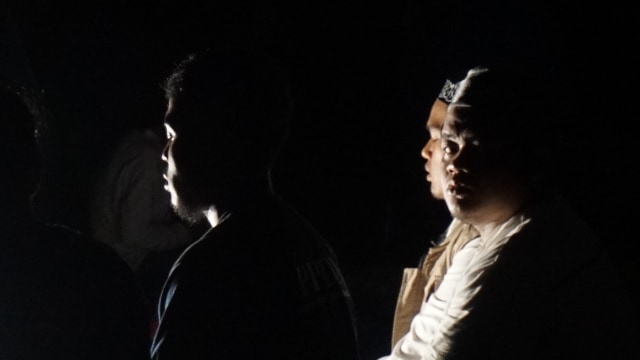Tentang KamiPedoman Media SiberKetentuan & Kebijakan PrivasiPanduan KomunitasPeringkat PenulisCara Menulis di kumparanInformasi Kerja SamaBantuanIklanKarir
2025 © PT Dynamo Media Network
Version 1.103.0
Konten dari Pengguna
Being Optimistic in the Midst of Calamity
21 Desember 2020 16:41 WIB
Tulisan dari Shamsi Ali tidak mewakili pandangan dari redaksi kumparan

ADVERTISEMENT
Islam is the religion of optimism and hope. Having faith as a Muslim gives us hope. On the contrary, being in despair is a sign of being ungrateful to Allah's blessings.
ADVERTISEMENT
Islam teaches us to be grateful all the time. In fact, it is an important essence of our gratefulness of Allah is hope and optimism. That no matter how bitter the life is, how challenging and difficult the circumstance we live in, we are always being blessed abundantly by the Almighty Allah.
Here are some reasons why Islam emphasizes the importance of being hopeful and optimistic, even in times when we are deeply challenged.
First, life itself is naturally a test. Allah says: "He has created death and life that He may test which of you is best in deed. And He is the Mighty, the Forgiving".
ADVERTISEMENT
Life is not only about its shape or format. But, it is more about how a person should deal with certain situations in life. Life can be both easy and difficult. It can be comfortable, and it can be deeply challenging. Then, it changes from one situation to another.
What matters for the believers is not about what type of life they may have. It rather how they should respond to each circumstance that may occur in your life.
Or if your life is challenging and full of miseries, but you respond to your situation with patience and dignity, not with despair and hopelessness, you also succeed in life.
ADVERTISEMENT
Therefore for believers no matter how challenging life is, they don’t lose their hope and optimism because they know that they are being tested to respond to the challenge accordingly.
Second, no matter how difficult the challenge may be, it ends. Allah says: "everything that is thereon will perish".
In other words, the world as a whole will end. And so any thing that is a part of this worldly life will also end. And that brings us a clear understanding that any difficulty or hardship will end, no matter how big and long it may appear to be.
Third, there is a concept in Islam called "al-ihtisaab" which means for anything that happens in life, as long as we take it into our "God consciousness" (taqwa), it is considered to be a source of blessings (barokah) and rewards (thawaab).
ADVERTISEMENT
The word "Ihtishaab" mean taking it into a calculation. Or being aware of Allah's blessings and rewards in it. The Prophet Muhammad (pbuh) said: "whoever fasts in Ramadan with iman and ihtisab, his past sins will be forgiven". Ihtisab here means "hoping for rewards" from Allah the Almighty.
Similarly when a believer is challenged, the more he is challenged, the more he believes in Allah's blessings and rewards. This will always keep him hopeful and optimistic.
Fourth, Allah is known as Rabb. Which means "Lord". The Rabb is derived from Rabaa-yarbuu-rabwah which mean to grow. This also is the original word of tarbiyah, which means education.
ADVERTISEMENT
This tells us that Allah is the source of all education. He the Almighty is educating His creations. Especially the best among all creations, human beings. And the faith (al-iman) is the most fundamental means of that education.
Will people be left alone simply by saying "we believe" and think they will not be tested?
And so, more possibly the stronger the faith the believers have the more challenging the tests they may endure in life. The ulul-azm (the mighty) among the prophets, such as Noah, Abraham, Moses, Jesus and Muhammad, peace be upon all, were tested in their lives the most.
And so the challenge the believers are facing is a part of that educational process by the Creator of the heavens and of the earth. The believers don't ask to be tested in life. But when it occurs they will face it with patience (sabar) and in God’s trust (tawakkal).
ADVERTISEMENT
This certainly enhances our hope optimism in the midst of the many challenges we face in life.
Fifth, believers always be certain that no matter how beautiful or otherwise ugly this life is, the next life will be more promising.
Allah the Almighty in various places of the Quran reminds us that the next life is far better than the current one. And so for believers, taking into account this fact, in time of difficulties and challenges they will surely build our hope and optimism.
Let me end with a story of Imam Shafi'i with a disbeliever of his time. As we know Imam Shafii was a great and respected Muslim scholar in Baghdad before he moved to Egypt. People respected him and he had a quite good life in Egypt.
ADVERTISEMENT
So one day a disbeliever challenged him by asking: "O Shafii, didn’t your prophet Muhammad say: this worldly life is like a jail for the believers and a paradise for the disbelievers? And so, how it is possible that your life is seemingly better than mine?"
In response Imam Shafii said: "yes it is true. For me no matter how beautiful this life is, compared to what Allah prepares for me in the life after death is still like a jail. And for you (disbeliever) no matter how difficult this life is, it is still a paradise for you compared to what Allah has prepared for you in the hell fire".
ADVERTISEMENT
Therefore, for the believers who face difficult challenges, always being mindful of what Allah prepares for them beyond this worldly life. And that will surely bring them hope and optimism to confront any difficulties, big or small they may encounter in this temporary life.
"Laa taqnatuu min Rahmatillah" (do not despair from the mercy of Allah), as the Quran reminds us.
Be certain that "at the end of that long dark tunnel there is a shining light". Insha Allah!
Imam Shamsi Ali*
Macazzart City, 21 December 2020
* Director, Jamaica Muslim Center / President, Nusantara Foundation

